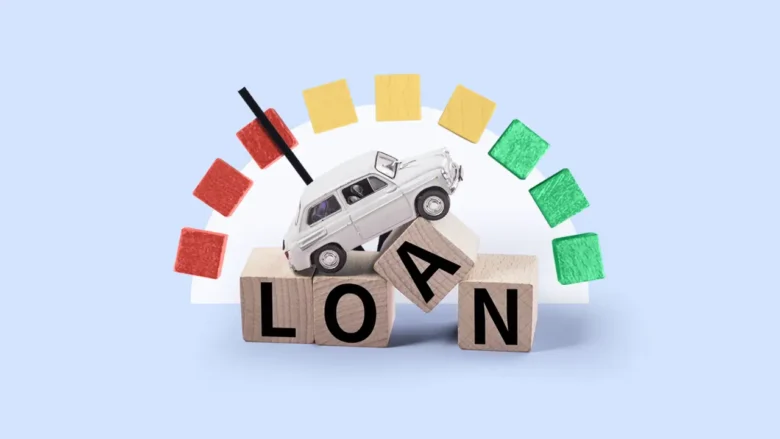Getting a car loan may seem impossible if you have bad credit, but it’s easier than you think. In recent years, many lenders have added more loan options to meet the needs of people with different credit histories. If you follow the steps below, you can get a car loan even if you have a low credit score. The key is to know how much money you have, find the right lender, and have a loan application ready to prove your reliability. You can get a car loan even if you have bad credit. In this article, we’ll show you tried-and-true steps that will get you one step closer to driving your new car.
Check Your Reports and Check Your Credit Score:
Even if you have bad credit, knowing your credit number is the first thing you need to do to get a loan. Your credit score tells lenders how creditworthy you are and helps them decide what loan terms they may be willing to give you. Equifax, Experian, and TransUnion are the three major credit bureaus. Get a copy of your credit history from each of them and check it carefully for any errors. Correcting errors or poorly processed scores can sometimes improve your score, which can help you get better loan options. Even doing something small to improve your score, such as paying off your bills or settling any disputes, can change the terms of the loan you can get.
Want to Save Up for a Larger Down Payment?
If you have bad credit, saving up money for a larger down payment is one of the best ways to improve your loan situation. A large down payment reduces the amount you have to borrow. This reduces the risk of the loan and can make them more willing to work with you. If you make a larger down payment, you may be able to get a better loan deal with a lower interest rate and lower monthly payments. While it may take longer to save up for a larger down payment, the extra money can go a long way towards improving your finances and making it easier to get a loan.
Have Someone Else Co-Sign with You:
A co-signer can make a big difference if your poor credit score is making it difficult to get a loan. A person with better credit who agrees to repay the loan, if you default, is called a co-signer. This extra coverage can help you get a loan and even get better terms. But keep in mind that the co-signer should have good credit and a history of responsible money management. This is because late payments can hurt your credit score. Choose your co-signers carefully, and make sure you can talk to them regularly to avoid any misunderstandings about your loan responsibilities.
Check Out Some Lenders:
Different lenders have different rules about who can lend money, especially people with bad credit. Traditional banks may have stricter rules about who they lend to, but credit unions, online lenders, and subprime lenders often have less strict rules. When it comes to providing financing, credit unions are known for offering more personalised loans and lower interest rates. Most online lenders allow you to pre-qualify, so you can understand the terms of your loan without having to go through a heavy credit check that can hurt your score. By looking at a few of these lenders, you can find the one that is most willing to work with your financial situation. This can make it easier for you to get a loan that meets your needs.
Do a Few Things to Improve Your Credit Score:
Even a small change in your credit score can make it easier to get a loan. Lenders look at things like a borrower’s debt-to-income ratio, the amount of credit they use, and their payment history. Pay your bills first. This will lower your debt-to-income ratio, making you a more attractive borrower. Another important step is to pay all of your bills on time. Paying your bills on time will improve your score and show that you can be trusted. It’s important to keep all past-due accounts up to date. These steps can help you build good credit over time, which will help you get better loans even if your score isn’t perfect.
Look for Shorter Loan Terms:
If you have bad credit, choosing a shorter loan term can help you get better terms. When a loan has a shorter term, the lender is willing to take on less risk, which usually means the interest rate is lower. This approach may increase your monthly payments, but it will reduce the total interest you pay over the life of the loan. Lenders may also be more willing to give short-term loans to people with bad credit because the loans are paid back more quickly, making them less likely to default. If a shorter term fits your budget, this may be a good option.
Get the Documents You Need:
If you have all the necessary documents in hand, you can get a loan. Lenders will typically ask for your most recent pay stubs, tax returns, utility bills, and bank statements to see proof of your income and determine if you can afford the loan. Lenders will be more confident in your financial security if you can show that you have a stable job and a steady income. Some lenders will consider factors such as work experience and how long you have lived in the same place, which can help offset a lower credit score. Having all the information you need can speed up the application process and increase your chances of getting a good loan.
Consider Buying a Used Car:
If you have bad credit, buying a used car instead of a new one is a smart way to lower your loan amount and increase your chances of approval. Used cars require lower loan amounts because they are generally cheaper. This reduces the risk for the lender and increases your chances of getting financing. However, keep in mind that interest rates on used car loans can sometimes be higher. Read all terms carefully before making your choice. Buying a certified pre-owned car from a good dealer can also offer additional benefits, such as a warranty, while still keeping the cost low.
Avoid Scammers Who Scam You:
If you have bad credit and want to get a car loan, be wary of questionable lenders. Some lenders can take advantage of people with bad credit by offering loans with unfair terms, high interest rates, or undisclosed fees. If a loan offer seems too good to be true, take a closer look at the terms and make sure they are clear. Don’t agree to terms you don’t fully understand, and don’t be afraid to ask questions. Taking the time to read the fine print can help you avoid signing a loan agreement that will further damage your finances.
Conclusion:
Even if you have bad credit, you can still get a car loan as long as you are patient, plan, and use the right methods. You are more likely to get a loan if you know your credit score, save for a down payment, find co-signers, and compare loans from different lenders. Creating a budget, working on your credit score, and having evidence ready will all make you a more trustworthy buyer. By finding the right process, you can get the credit you need for your next car without jeopardizing your finances.
FAQs:
1. Can I still get a car loan if my credit score is below 600?
Yes, many companies offer car loans to people with a credit score below 600. If you’re talking to more than one loan officer and are considering getting a cosigner, you may have more options.
2. How much down payment should I make if I have bad credit?
Typically, a down payment of 10 to 20 percent of the price of the car is a good idea, but the more you can save, the better. A larger down payment will lower the amount you borrow, which can help you get approved and lower your monthly payments.
3. Will taking out a large loan hurt my credit score?
Yes, every time you apply for a loan, your credit score can drop briefly due to difficult enquiries. However, some credit scoring models consider multiple applications in a short time to be a problem. This is especially true for car loans, so it’s best to shop around quickly.
4. If you have bad credit, is it better to get a car loan from a bank or a credit union?
When it comes to lending to people with bad credit, credit unions are often more open than traditional banks and offer lower interest rates. You should research both options and compare the terms to find the best one.
5. If I want to get a car loan, should I try to improve my credit score first?
Checking your credit score before applying for a loan can help you get better terms, such as a lower interest rate. Waiting a few months to pay off debts or account balances can have a big impact on your loan options.




